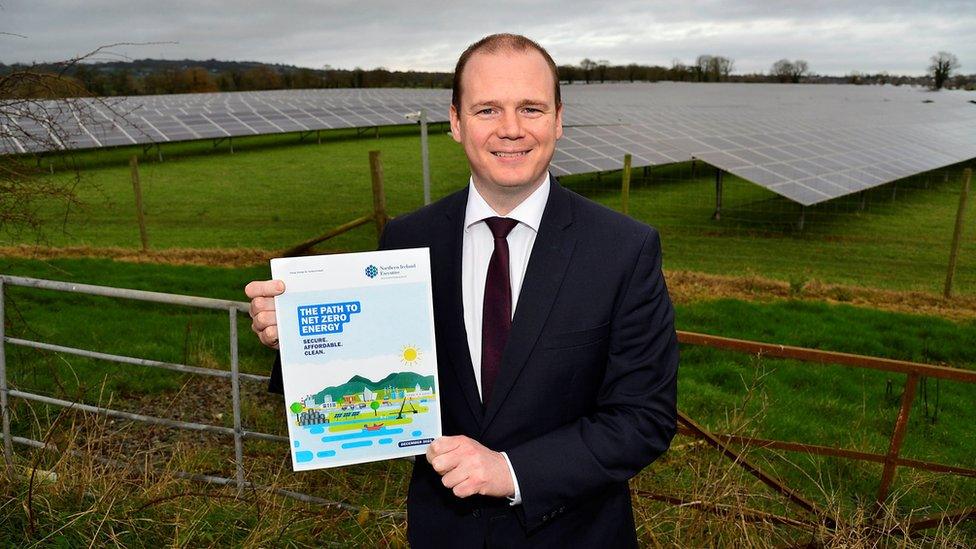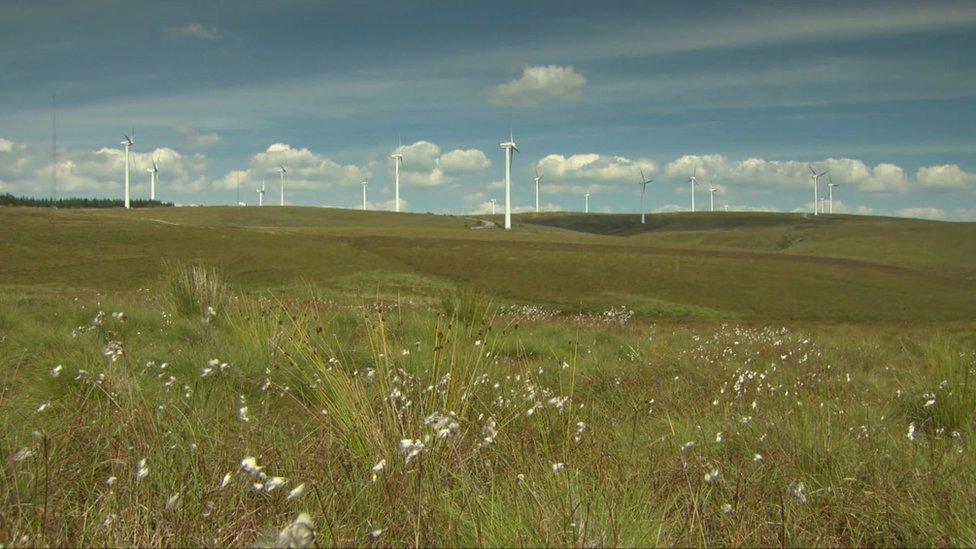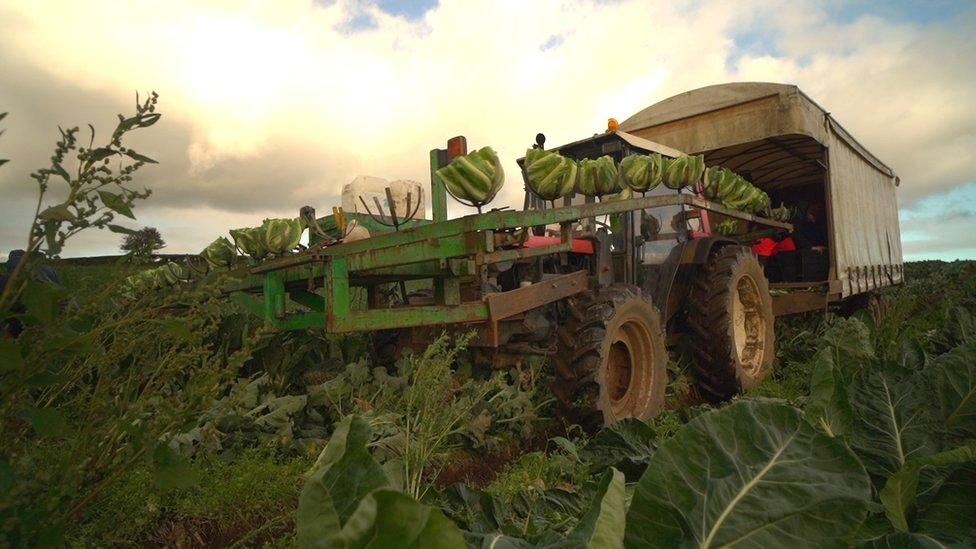NI energy strategy sets out 2050 decarbonisation target
- Published

Economy Minister Gordon Lyons launched "the path to net zero energy" strategy on Thursday
Northern Ireland could become a world leader in green energy generation, according to Stormont's Department for the Economy.
Its new energy strategy sets a target of 70% of local electricity supplies coming from renewable sources by 2030.
The strategy includes a plan to fully decarbonise by 2050.
It said moving to an indigenous fuel source will protect the consumer and the economy from the effects of volatile fossil fuel prices.
All of Northern Ireland's oil, gas and coal is currently imported.
Under the strategy, a "one-stop shop" will be created, where consumers can get advice and support.
Economy Minister Gordon Lyons said "the path to net zero energy" strategy will bring significant changes, but lead to "a healthier economy and society".
The strategy has taken almost two years to develop. It follows a consultation which closed in June this year.
It will be followed by an annual plan, to be published in January 2022.
That will be reported on, with annual progress reports and five-year reviews for the strategy as a whole.
A new Northern Ireland Executive programme board will oversee the delivery of the strategy, which will also require new legislation.
Hydrogen economy
Mr Lyons said Northern Ireland was now on a path to transforming how our energy is developed and consumed.
"Decarbonising energy means achieving so much more than carbon reductions," he said.
"We are already world leaders in integrating renewable electricity generation and we can also become world leaders in the new hydrogen economy.
"We will play to our strengths. Our world-leading engineering sector will be at the centre of this," the minister added.
It is hoped that the strategy will deliver 25% energy savings by 2030, from improving energy efficiency in buildings and industry.
The focus is on 2030, as part of a longer term strategy heading towards a 100% reduction in energy-related emissions by 2050.
While those emissions have already fallen by 25%, achieving that has taken more than 30 years.
Affordability was crucial, according to businesses, consumers and representative groups that took part in the consultation.
Fairness - that no one sector or section of society would carry the burden - was another issue.
The strategy has 3 standards by which affordability will be measured - household energy expenditure relative to all expenditure; households in fuel poverty; and business energy purchases relative to turnover.
Almost a fifth (18%) of households in Northern Ireland are in fuel poverty, with all households spending 11% of their income on energy. Businesses spent 2% on energy relative to turnover in 2019.
The publication of the strategy has been welcomed by renewable energy groups like RenewableNI. Its head, Steven Agnew, said it should be put in place as soon as possible.
"It is time for everyone to begin the process of implementing, not continuing to talk about how it should happen.
"We want to look back on 2021 as the year of COP26 and the Energy Strategy, but 2022 must be the year of action and change."
Related topics
- Published12 November 2021

- Published30 October 2021

